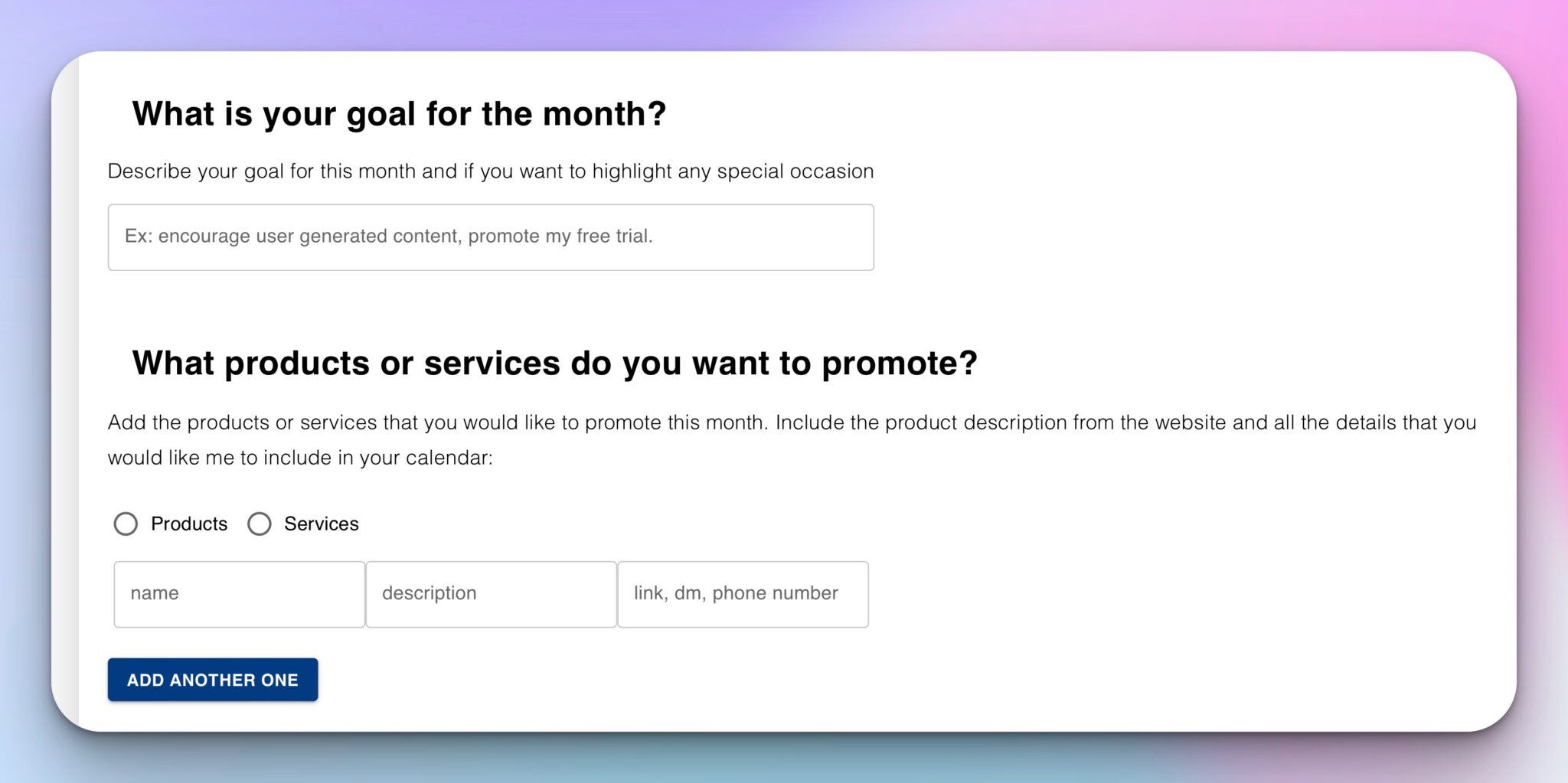|
Getting your Trinity Audio player ready...
|

What is Content Marketing?
Content marketing is the practice of crafting high-quality, valuable content and delivering it to your target audience. It is the opposite of old-school, spammy, promotional-driven tactics aimed only at a short sell. Content Marketing is the new way of selling through educating prospects with the information they actually want to read.
Content marketing should answer a prospect’s pain points and questions. It should be highly targeted to an audience with optimized keywords that matches a searcher’s intent. A content marketing resource library should include answers to your prospect’s challenges to help them become informed decision-makers. Plus, this can help you get found in featured snippets on Google, Bing, and other AI search engines.
Why is Content Marketing important?
As the digital media landscape has changed, the expectations for content output has exponentially increased. The reality is that if you are a small business owner, content output is critical to your PR and Social Media Strategy. Plus, if you are going to use sponsored content or advertorial content to reach your target audience, you have to know how to craft SEO-friendly copy.
Why is a content calendar important?
Content marketing is quite possibly the best investment you could make in your business right now. However, in order to do it right, you need to get into a publishing flow and have the right resources lined up to make sure your content is optimized for search engines. As any writer can attest to, writers block can spring up out of nowhere, sometimes when you least expect it.
The specific type of content to include in an editorial calendar depends on the organization’s goals, target audience, and desired method of distribution.
The best way to stay on track is to plan ahead. Great content does not come from thin air—it comes from a team of marketers, SEO strategists, and editors who take the time to meticulously plan and publish through the use of an editorial calendar.
Is content marketing right for my business?
The content marketing landscape continues to evolve with the advent of artificial intelligence.
Content marketing can directly influence your prospects, patients, referral sources and new business stream.
With the flood of AI-generated content, branded content and owned media will become even more important to distinguish your brand from competitors.

5 Tips for Creating the Perfect Social Media Content Calendar
What should a content calendar include?
Follow these five rules if you’re serious about publishing consistently and increasing your search engine rankings:
Set goals. Setting an attainable content goal is the first step to publishing quality content. It is imperative to clearly understand what you want to achieve before you start to execute a content marketing strategy. If you have no strategic direction, your content will not be effective. Clarifying the end result prior to launching your first piece of content will help make your ideas fall into place. For example, are you publishing content in order to build up keyword-rich content and backlinks to your site? Are you publishing content to create a library full of helpful resources for prospects? Or are you trying to distinguish your personal brand in an over-saturated industry? Be sure to establish the goals for why you are engaging in content marketing prior to writing your first piece.
Know who you are writing for. Before creating an editorial calendar it is important to identify your target audience. What do they want to read about? What posts have they liked in the past? Use your past engagement metrics to create content around what your audience is looking for. Sometimes, the content that you, as a writer, find most interesting may not be what your audience wants to read about. It is important to distinguish between the two and to make sure the content that you publish aligns with what your audience craves.
Know what you want to write about. A great way to bring clarity to your content marketing strategy is by tying each month together with a cohesive content theme. Using an editorial calendar will make creating these themes easier to conceptualize. Try focusing on a key central messaging topic to keep your followers interested. For example, if you want to establish a personal brand as a top surgeon, then all of your posts should tie back to medicine and wellness. Once you establish a theme, be sure to stick to it.
Know where your content will go. Think about the social media channel where your content will appear and tailor your writing to that audience. Each social media channel has a different set of users; therefore, tailoring your voice to those unique users will help grab their attention. For example, a different editorial strategy should be used when posting your article on LinkedIn as opposed to Twitter. In addition to the home base where your content will reside, carefully outline the other channels where it will be hosted. You may want to publish the article on LinkedIn, Medium or even repurpose it as a guest post. Be sure to change the title around a bit each time you do this to avoid SEO penalties for duplicate content. If you are concerned, you can even add in a no-follow link where the second version of the content appeared.
Know your frequency limits. How much can your content team handle? It is crucial to be realistic when creating an editorial calendar. If you do not have the time or manpower to execute a blog post a day plus social media posts, do not be afraid to scale back! It is better to publish high-quality content a few times a month than to post poor content that will damage your brand equity. When deciding on how frequently to publish, plan your content around how much work will go into each type of post. For example, an attainable publishing frequency may include social media posts three days a week, a blog post once every other week and an e-book once a month. Keep in mind that a typical blog post could take up to ten hours to complete between writing, editing numerous drafts, sourcing images for the post, optimizing the post with keywords and distributing the post on social media.
How can a content marketing agency help my business with content marketing and social media efforts?
A content marketing agency will streamline your content efforts and deliverables across various social media platforms. As part of the Brand Marketing team, the social media agency will manage and interface with various writers, editors, copywriters, content producers, and media specialists. The agency will work cross-functionally with the larger growth, brand marketing, product, social, community and design teams.
Successful content marketing has an incredible impact on business visibility. As a social media campaign manager, your agency is responsible for overseeing all digital content creation for your brand. This helps to develop your editorial voice, establis your thought leadership marketing campaign and ultimately drive conversions.
The Director of Content will help your business:
- Create and shape a content calendar to support brand campaigns, community education and product releases.
- Develop and oversee the holistic content strategy for your brand across all outputs including blog, social media, social audio, podcasting, and editorial.
- Build content strategies to grow top of funnel awareness
- Strategize to build an affinity for the brand with existing users in an effort to grow the community
- Continually grow, manage, and foster a world class content team, including a roster of freelancers and regional creative talent
- Grow your audience to convert users, build brand affinity, and increase your employer brand
- Optimize content for reach, relevance, and revenue
- Work closely with various teams including but not limited to growth, social, public relations, product marketing and legal.
Content that ranks can lead to profitability for your business for years to come.
“Content marketing never goes out of style.” -Kris Ruby
Content Marketing Takeaways:
- If you frequently publish content, you must be proficient in SEO (search engine optimization) for your content to rank.
- Content marketing must be tied to your overall business marketing strategy.
- For content marketing to be effective, you must understand what the business’s growth objectives are to create compelling content.
- Understand your audience. Know who you are writing for, how to reach them, and the best keywords to make your content visible on search engines.
- Craft content that answers questions. Look at Google snippets for inspiration to see what others are asking in your industry.
Content marketing tips for content repurposing
The best social media marketers repurpose content onto other platforms.
A critical component of your editorial content calendar and content marketing strategy is the art of content repurposing. To master content repurposing, remember to keep a master database of all brand assets in one centralized location.
Step 1: Create a master database in Notion of every final piece of content. This should include blog posts, social media posts, videos, podcasts, ebooks, webinars.
Step 2: Keep track of dates, authors, ownership, edits and publication.
KPIs. What impact did the content have? Keep track of content KPIs.
Frequency. How often do you repurpose content? Did you reshare the content more than once? Which platforms was it repurposed to? For example, blog post to Twitter threads or LinkedIn carousels, or video?
Content Marketing can be overwhelming! Here are two insider tips to make it easier on you:
1) Take free courses. There are many content marketing classes online which will help writers in this area, particularly SEO classes, which is an integral part of content marketing. Also, consider taking inbound marketing courses to hone your content skills. Content marketing is integral to an inbound marketing strategy.
2) Sharpen your marketing skills. To create content that will rank and convert, you need to understand things like buyer persona, an inbound sales funnel and social reach. If the writing is good but it isn’t written to a target audience, it will ultimately fail to achieve the higher level conversion goals in your sales funnel. You cannot write content without understanding your buyer personas journey, otherwise, you will be writing articles that will ultimately be tailored to a non-specific audience. If you want to understand content marketing best practices, you can also check out The Content Marketing Institute.
Content Marketing Agency NYC | Content Marketing Services
Best in class content strategy
Do you need help creating content that converts? Contact us for a consultation. Streamline Your Content Marketing Strategy today!
Ruby Media Groups B2B social media marketing strategies are designed to help clients build their brands, increase engagement with their target audiences, and achieve marketing and business goals. RMG helps clients develop and curate content for their social media channels, including creating original content, sourcing user-generated content, and developing editorial content calendars to ensure a consistent posting schedule.
Spend less time writing content and more time running your business!
Ruby Media Groups services include:
- Content Creation
- Content Marketing
- Content Strategy Development
- Content Optimization
- Content Pruning
- Enterprise Social Media Management
ABOUT THE AUTHOR
RMG Founder Kristen Ruby has a strong digital content background. Ruby has proven industry experience building content for fast-growing SaaS and technology startups with a focus on growing audiences.
CONTENT MARKETING RESOURCES
For more articles on content marketing, we suggest the following resources.
This article also appeared in Observer- written by Kris Ruby.
5 Golden Rules for Crafting Your Content Strategy | Observer
Why Content Marketing is Critical In The Age of Visual Marketing | Ruby Media Group
KRIS RUBY is the CEO of Ruby Media Group, an award-winning public relations and media relations agency in Westchester County, New York. Kris Ruby has more than 15 years of experience in the Media industry. She is a sought-after media relations strategist, content creator and public relations consultant. Kris Ruby is also a national television commentator and political pundit and she has appeared on national TV programs over 200 times covering big tech bias, politics and social media. She is a trusted media source and frequent on-air commentator on social media, tech trends and crisis communications and frequently speaks on FOX News and other TV networks. She has been featured as a published author in OBSERVER, ADWEEK, and countless other industry publications. Her research on brand activism and cancel culture is widely distributed and referenced. She graduated from Boston University’s College of Communication with a major in public relations and is a founding member of The Young Entrepreneurs Council. She is also the host of The Kris Ruby Podcast Show, a show focusing on the politics of big tech and the social media industry. Kris is focused on PR for SEO and leveraging content marketing strategies to help clients get the most out of their media coverage.

